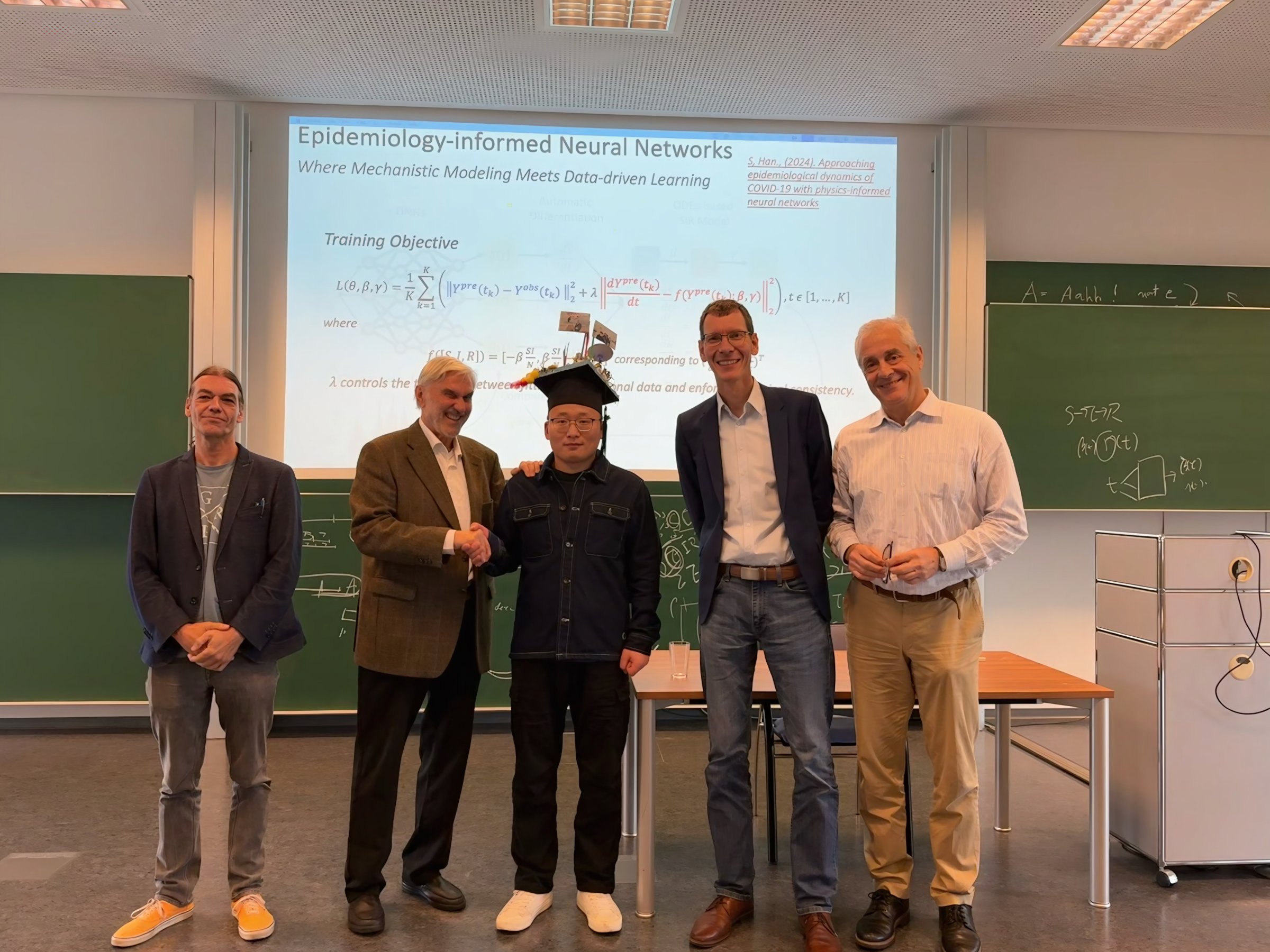September 22, 2025
Shuai Han's PhD on epidemic models
Deep learning enables interpretable predictions for complex spatiotemporal patterns.
Shuai Han from the research group of FIAS Senior Fellow Horst Stöcker successfully defended his doctoral thesis on September 22, 2025. He investigated a novel integration of mechanistic epidemic models with modern deep learning to achieve both high predictive accuracy and crucial interpretability in epidemiological forecasts.
"We explored the synergy between mechanistic modeling and artificial intelligence to gain a deeper understanding of epidemic dynamics," Han explaines. They used a core methodology centered on physics-informed deep learning. His work specifically addressed how these hybrid models can incorporate physical constraints and prior knowledge to produce reliable and interpretable predictions, even when data is scarce and uncertain.
Using models such as the Physics-Informed Hybrid Model (PIHM), Han showed that controlling deep learning with established epidemic theories leads to predictions that are both interpretable and capable of capturing complex spatiotemporal patterns. A key innovation of his work is the design of hybrid architectures that embed classical compartmental model structures directly into neural networks, creating a new way to combine mechanistic insights with data-driven learning.
Han is the author of three publications in the field of AI4Science, highlighting the potential of physics-informed hybrid models to effectively bridge the gap between theory and practice.
In the future, Han hopes to continue his research at the intersection of AI and intelligent healthcare to translate advances in physically informed machine learning into tangible benefits for real-world medical and clinical contexts.
